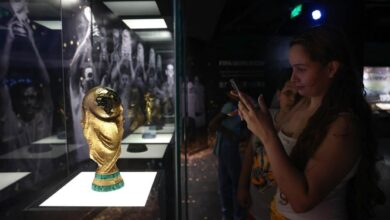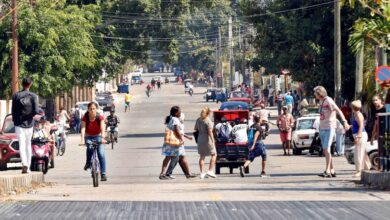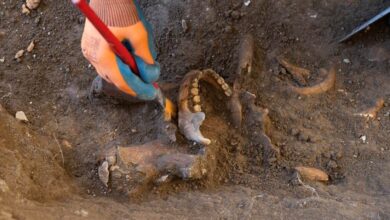Colombia: the political extremes will face in the second presidential round
The right-wing representative, Iván Duque, will face the left-wing candidate, Gustavo Petro, to be the 60th president of Colombia

On May 27 was held in Colombia the first round of the presidential elections for the period 2018-2022.
This first election day left as the winner the candidate of the Centro Democrático party, Iván Duque, who obtained a total of 7'569,693 votes; that is, 39.1% of the total vote. In the second place, with 4'851,254 votes and a percentage result of 25.1%, remained Gustavo Petro, representative of the Colombia Humana movement.
Leer en español: Colombia: los extremos políticos se enfrentarán en la segunda vuelta presidencial
Behind them are Sergio Fajardo with 23.7% of the vote, followed by Germán Vargas Lleras with 7.3% and Humberto de la Calle with 2.1%. The latter with the same percentage that obtained the blank vote.
In this way, both Ivan Duque and Gustavo Petro will participate in the second round to be held on June 17. This is because, according to article 190 of the Political Constitution of Colombia, "the President of the Republic will be elected (…) by half plus one of the votes. If no candidate obtains such majority, a new vote will be held (…) in which only the two candidates that obtained the highest votes will participate". So, because Iván Duque did not reach 50% plus one of the total vote, he must fight again in a second day against the candidate of the left in Colombia.
The extremes in struggle
It is no secret to anyone in Colombia that the elections of June 17 represent an ideological battle of great caliber, having to choose between the right-wing represented by Ivan Duque, or the left-wing of which it is part Gustavo Petro.
Duque, with only 42 years, has in his favor the sponsorship of former president Álvaro Uribe Vélez. The current senator still represents one of the most important political forces and impact in Colombian society, and Iván Duque reflects among his thoughts and actions the image of the former president.
Undoubtedly, democratic security, which seeks to strengthen military institutions in Colombia, as well as the defending private enterprise, is one of the most important issues that Duque has raised during his campaign.
In contrast, Gustavo Petro, former mayor of Bogotá from 2011 to 2015, comes with ideas based on the defense of civil rights. Born in Ciénaga, Magdalena, he has raised the existence of a State responsible for the welfare of its citizens, so he aims to highlight the public economy over the private. Also, in a matter of security, he assured that he intends to restore the importance of regional authority forces over national ones.
However, the issue of the Peace Accords with the former FARC guerrilla, which is fundamental in Colombia today, ends up cutting, even more, the relationship between both candidates and their respective ideology. Duque has not hesitated to show his concern with the "impunity" that reflects this agreement today and has made it clear that if he is president he will intervene in this.
For his part, Gustavo Petro has not been oblivious to this issue, but from the other side of this. The candidate has defended the agreement, from the importance it has represented in relation to the reduction of violence in the country and the social growth shown by the regions where the presence of the guerrillas predominated.
The past does not forget
However, both candidates are conditioned by judicial and social spectres of the past. Iván Duque, as the bastion of uribism, has been carrying out investigations by links with drug trafficking and paramilitarism against Álvaro Uribe (which have never been proven); as well as the state crimes, the so-called "false positives", which were presented during the senator's terms. This is something that today causes more indignation among the opponents of Uribism and of course its candidate.
Meanwhile, Gustavo Petro is pursued by his past with the ex-guerrilla of the M-19 during the 80s. The fact that he was part of this armed group has positioned him among the public opinion as a possible leader of the Marxist ideology exposed by the Fuerza Alternativa Revolucionaria del Común, the former guerrilla group of the FARC, although Petro has not shown any relationship with them.
He has also been condemned as a "second Chavez" because of the similarities in his speech with the Venezuelan ex-president. In addition, his permissiveness with the regime led by Nicolás Maduro in Venezuela has given rise to his opponents to ensure that the arrival of Petro to power would mean the replica of the "Socialism of the 21st century" in Colombia.
This is how on June 17, Colombians will have to choose between two very different ideologies and political forces, which reflects the polarization that the country has been showing over the last few years. From one of those two extremes will be the next president of Colombia.
Latin American Post | Christopher Ramírez Hernández
Translated from "Colombia: los extremos políticos se enfrentarán en la segunda vuelta presidencial"





